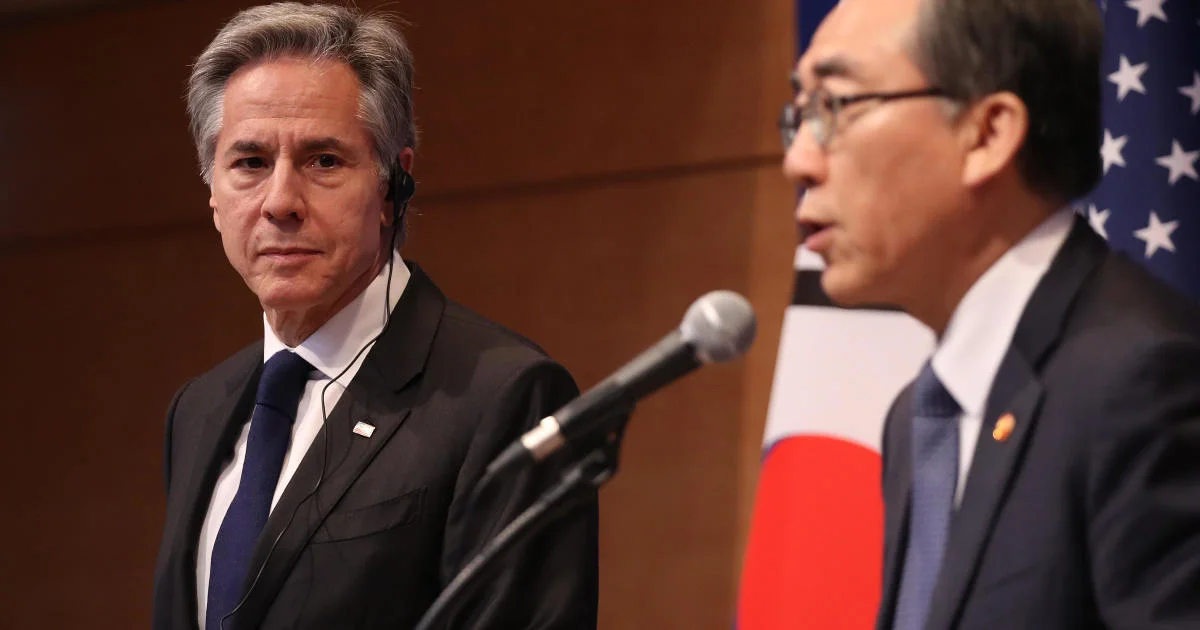
Blinken travels to Japan while the Nippon Steel ruling strains ties
The $14.9 billion proposal for U.S. Steel by Nippon Steel was blocked by U.S. President Joe Biden, which clouded Secretary of State Antony Blinken’s trip to Japan on Tuesday for final negotiations with Washington’s most significant Asian partner.
The decision, which was made public on Friday, has disrupted U.S. attempts to strengthen ties at a time when the political unrest in neighboring South Korea may make a strengthening trilateral alliance between Washington, Seoul, and Tokyo—which was established to oppose China’s increasing military might—more difficult.
Shigeru Ishiba, the prime minister of Japan, called Biden’s move to halt the sale of U.S. Steel to Nippon Steel “perplexing” on Monday.
Although Japanese investment in the United States may also be curbed, analysts predict that any harm to their broader relationship would likely be minimal given the two nations’ common security concerns over China and the political upheaval in the United States, where Donald Trump takes office on January 20.
CONFERENCES
Blinken met with Japan’s Foreign Minister Takeshi Iwaya in Tokyo, accompanied by White House National Security Advisor Jake Sullivan. He then met with Ishiba and other high-ranking Japanese officials.
The United States’ seven visits to Japan in the past four years “testify not only to the significance of our partnership, but also to its centrality.” To emphasize that, President Biden requested me to accompany him on this final trip,” Blinken said to Iwaya.
“We have, between our two countries, a partnership that started out focusing on bilateral issues, that worked on regional issues and that now is genuinely global,” he stated.
Blinken wants to build on the momentum of U.S.-Japan-South Korea trilateral cooperation, the State Department stated ahead of his trip.
As South Korean investigators attempted to extend a warrant for the arrest of impeached President Yoon Suk Yeol on Monday, Blinken expressed confidence in the country’s ability to handle its political unrest.
Ahead of Trump’s reelection on November 5, Reuters reported that Trump’s supporters have also told Seoul and Tokyo that he will back ongoing initiatives to strengthen relations and promote military, economic, and diplomatic cooperation to confront China and North Korea.
TENSION, LIMITED DAMAGE DUE TO THE DECISION OF NIPPON STEEL
On Monday, Nippon Steel and U.S. Steel filed a lawsuit alleging that Biden had blocked their $14.9 billion merger through a phony national security assessment, in violation of the U.S. Constitution.
They demanded that the ruling be overturned by a federal court in the United States.
A Japan specialist at Washington’s Center for Strategic and International Studies, Nicholas Szechenyi, said Biden’s choice would make Blinken’s trip to Tokyo “awkward.”
however, “Japan won’t let the Nippon Steel decision poison the U.S.-Japan relationship; it’s too important for Japan’s national security,” he stated.
Blinken did not answer reporters’ yelled questions on the possible effects of Biden’s U.S. Steel decision on bilateral ties after seeing Ishiba at his home on Tuesday.
According to a news statement from the Japanese government, they talked on economic and security ties, particularly the “importance” of Japanese investments in the US.
According to a Japanese diplomat who spoke to Reuters, Biden’s decision may discourage foreign direct investment, but he expressed hope that close U.S.-Japan ties would endure, with a particular focus on leveraging Washington’s growing hawkish stance toward China and reestablishing the close ties with Trump that existed during his previous administration.
Business lobbies in the U.S. and Japan vigorously promoted the merger, citing concerns about the impact on the U.S.-Japan relationship as evidence.
Biden and Trump, however, opposed the combination. In the run-up to his reelection, Japan aggressively courted Trump.
After he won the election, Trump reaffirmed his “totally against” stance on the merger, promising to prevent it as president and provide tariffs and tax incentives to U.S. Steel.
According to a former top official in Trump’s first administration, he thinks Trump would have adopted Biden’s strategy, he told Reuters.
In the face of Chinese dominance or competition in critical sectors, Marc Busch, a fellow at Georgetown University’s McDonough School of Business, predicted “significant fallout” for U.S. attempts to collaborate with allies to build robust supply chains.
“Japan and its allies will be hesitant to identify themselves with or engage in politically sensitive U.S. supply networks. The fact that China could never have dreamed for a better result must make it laugh.
All Categories
Recent Posts
Tags
+13162306000
zoneyetu@yahoo.com


